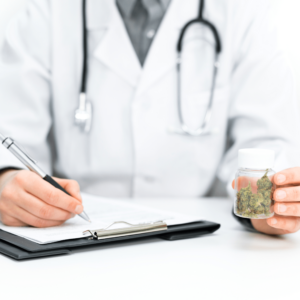Earlier this year, the New York Health Department announced plans to improve the state’s medical marijuana program. The new regulations, which went into effect Dec. 27, 2017, include an expanded list of approved product types that now makes certain topicals and edibles along with non-smokable ground plant material available to medical cannabis patients.
FOLLOW US ON FACEBOOK & INSTAGRAM
Medical Marijuana Patients Can Now Choose From a Variety of Consumption Methods
Newly approved cannabis topicals include ointments and lotions. This is great news for patients who are in need of localized relief from pain—whether due to general soreness, inflammation or stiff joints. Transdermal patches—medicated adhesive patches that are placed on the skin and release small amounts of cannabis into the bloodstream over a longer period of time—are also on the approved list.
Meanwhile, allowed marijuana edibles comprise chewable and effervescent tablets and lozenges. A familiar form of medicinal ingestion for many, tablets and lozenges are ideal for folks requiring longer-lasting relief stretching upwards of six to eight hours.
For the DIY patient, ground marijuana flower that’s now legal for purchase can be made into a butter or oil used to cook with at home. Previously, the list of approved forms of administration had been limited to vaporizers, capsules, oils, tinctures and sprays.
Non-Certified Folks Can Walk Into Medical Marijuana Dispensaries
The new regulations have also relaxed restrictions around allowing only certified individuals to enter a medical marijuana dispensary. Now, prospective patients and practitioners can walk into one of the 20 registered organizations (ROs) in New York to get information about the medical marijuana program and the cannabis products on offer there. Designated caregivers can also go in with patients to any RO.
Health Practitioners Can Get Certified More Easily
The New York Health Department has also made it easier for doctors and nurse practitioners to get certified—cutting the four-hour medical marijuana education course they’re required to take in half. With hope, this will translate into a larger pool of certified health practitioners who can then in turn certify qualifying patients—who now number more than 38,000—for the medical marijuana program.
Photo credit: Frank Köhntopp
If you’re new to cannabis and want to learn more, take a look at our Cannabis 101 post. HelloMD can help you get your medical marijuana recommendation; it’s easy, private and 100% online.






